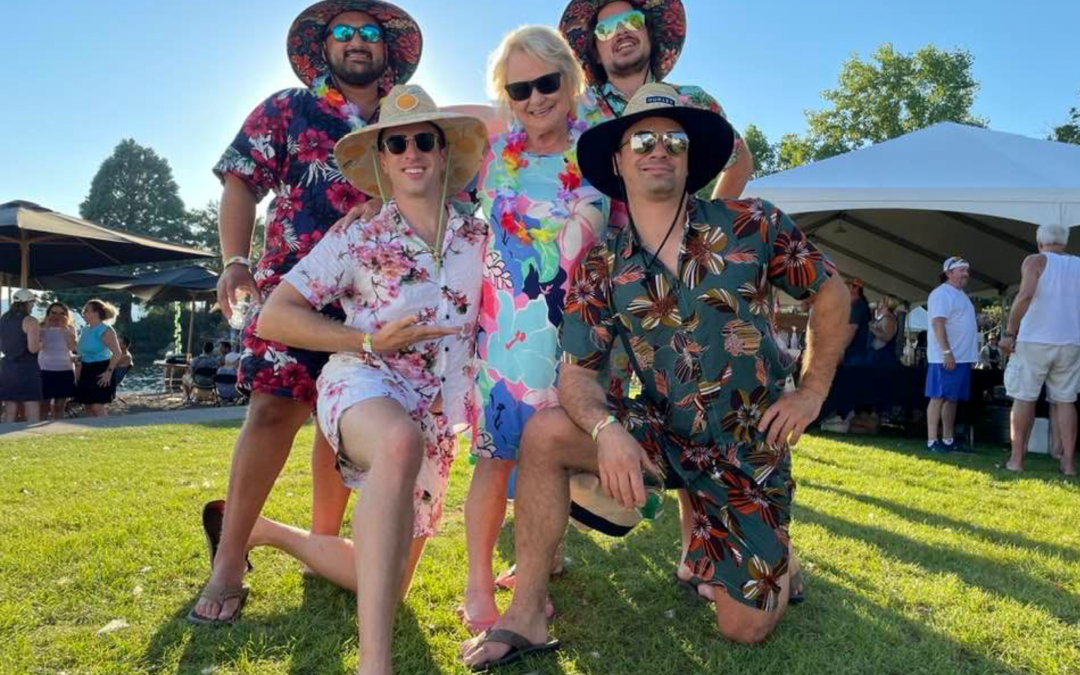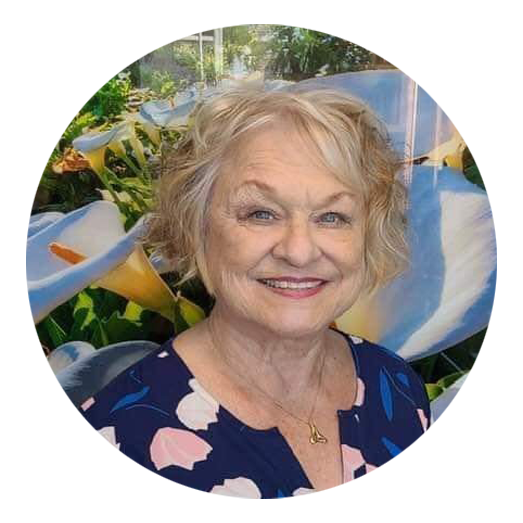
What’s In A Name?
I recently took a group tour abroad with what we politely call “mature” people. Most were couples, and something that stood out as unusual for such a group was that most women had different names than their husbands.
I commented to one of the women that I found this remarkable because “back in the day,” women changed their names when married. This is understandable in second (or third marriages), but several of these folks had been married forty years or more. This woman pointed out that the women I was referring to did not have advanced degrees. Is that it?
If you had an advanced degree, did you not change your name when you married? Hmm.
I married at the age of 20 back in the very dark ages, and it did not seem to even be an option. It would be “weird” to have a different name than your husband. After 22 years of marriage, I did think about a name change when I got divorced. It was much more common then. However, my name changed when I was adopted by my stepfather at age 8 and married at 20.
Therefore I had this “married” name for much longer than any other. So I kept my name. When my daughter married, it was not even a consideration. Of course, she kept her name. Why wouldn’t she? Thus my married daughter and I have the same name.
I once had a friend who changed her first name also when she got married because she wanted a less ethnic name. A few years later, she found that an ethnic name was helpful for specific employment purposes and changed it back. And this was a woman with an advanced degree.
I work with divorcing women and always discuss name changes with them. In my state, they get a free name change with a divorce. Men can as well, but rarely do. I point out that it can be something other than a name you have ever used. You can be Sunshine or Rainbow. I even met a woman who chose Newborn. By the way, I detest the term “maiden name.” What does that even mean? How old-fashioned. I use “former name.” Even though one can get a free name change with a divorce decree, changing your name on your passport, social security card, employer ID card, credit card, etc., is challenging. Seems hardly worth it.
This naming convention is only the norm in some countries. In some, the custom is to combine both names. For example, in Iceland, you cannot change your last name to your husbands, but you can change your middle name to his last name. Confusing. Any more confusing than what we do?
Some of my women clients are concerned that they won’t have the same name as their children. I point out that it is not unusual for children to have a different name than their mothers. I cite my own grandson. This raises the question, why does the American naming convention determine that children have their father’s name? There is no such requirement. Don’t get me started on hyphenated names. A whole new challenge.
Maybe both parties in a marriage should change their names to something else. Wouldn’t the family tree researchers have fun with that?
So what has been your experience with name changes? Do you have some cultural norms? Do you wish you had done it differently?

Funny Girl
(Yes, these are words to a song)
Funny
Did you hear that
Funny
Yeah, the guy said honey,
You’re a funny girl
That’s me; I just keep them
In stitches doubled in half
And though I may be all wrong for the guy
I’m good for a laugh
I guess it’s not funny
Life is far from sunny
When the laugh is over
And the jokes on you
A girl ought to have a sense of humor
That’s one thing you really need for sure
When you’re a funny girl
A fellow said a funny girl
Funny, how it ain’t so funny
Funny girl…
This song started resonating with me lately, and I had to look up the words. It seemed so relevant. The last line was, “even a funny girl can cry.” Well, maybe another version, or I made it up.
It was playing in my mind because I wanted/needed to write a blog post. I try to keep them light and funny—encouraging—it’s never too late. But what if I am not feeling funny or reassured, and it seems too late? It happens.
It happens to everyone.
One of the first things one must notice is: are you making stuff up? That friend that hasn’t called, the money didn’t show up, someone frowned at you, and myriad unfunny things.
But do you know the whole story, or did your imagination fill it in?
Then there is the real stuff-a health crisis, divorce, job loss. What to do, then? Indeed, these things are not funny. You have every right to put your head under the pillow and stay there—for a while. Then you must “pick yourself up and start all over again,” as another song says.
How do you do that?
Here are some ideas for you to take action on:
- Talk to a therapist. (Well, duh,)
- Journal —write it out
- Communicate with a friend
- Give yourself time to cry it out. Really cry it out
- Take a walk—in nature, in the rain, on the beach, walk
- Make an action plan with a giant whiteboard—cross off as you complete
- Color (I have not tried that yet)
- Music that lifts you up (playlist, anyone?)
I want to punch the person who says, “this too shall pass,” in the face. Or “look for the good” and all that blah blah. That is not what you want.
I am reminded of a therapist’s advice long ago: “only be depressed in this room. When you walk out, pretend you are not depressed. Just pretend.” You may still be depressed, but you might be surprised at how you fool yourself.
Go ahead—be a funny girl.

Ageism or Sageism? (From the archives of “Not Your Grandmother’s 70,” 2013)
The question for today: How to impart wisdom to those following behind without sounding like a know-it grumpy old person.
I started this blog when I celebrated my 70th birthday. My challenge for the BIG birthday was a two-week trip down the Colorado River through the Grand Canyon. My birthday cake is the cover photo. Today I have another birthday. A little more quiet this year. My challenge for this year is actually to keep this blog going. So today, we begin.
The subtitle is “Alternative to being a senior citizen.” I mean that I want to encourage people to think differently about being a “senior citizen.” My preferred term is “Sage.” Being a sage means passing on your wisdom to the next generation. My challenge is understanding the difference between being a sage and just a batty-babbling old lady. What is essential to pass on? What wisdom do I impart?
Each generation wants to find its own way, but does that mean they are unwilling to learn from the past? I hope not. I have been watching Mad Men with a neighbor. We started with season one, which was set in 1960. The furniture, clothing, and more are very accurate. As we progressed through the series (we are now in season 5, set in 1965), I realized that the show represents my adult years. I was 19 the year the show began, and now we have reached my early married years. My friends ask, “Was it really like that?” Yes, yes, it was.
Yes, when I came to Little Rock Air Force Base in 1962, the local department store did have a “white ladies rest room.” Yes, women had to ask their husband’s permission to do anything, and you could not have your own bank account. Career? OK, as long as you are a teacher, a nurse, or a secretary. (I was a teacher.)
I lived through the Cuban Missile Crisis, both Kennedy assassinations, the march on Washington, and the civil rights bill. I saw the effects of Title 9 on women’s athletics. I sold bracelets for the Equal Rights Amendment fundraising and met in women’s “consciousness-raising” groups.
I want to be an active voice of the past, helping people — men and women — find their way in the world and helping us build a brighter future.
Will you join me on this voyage of discovery? I hope future generations continue to build on what we have accomplished. I hope they don’t just want to discover it all themselves.
No Results Found
The page you requested could not be found. Try refining your search, or use the navigation above to locate the post.

Karin Quirk

